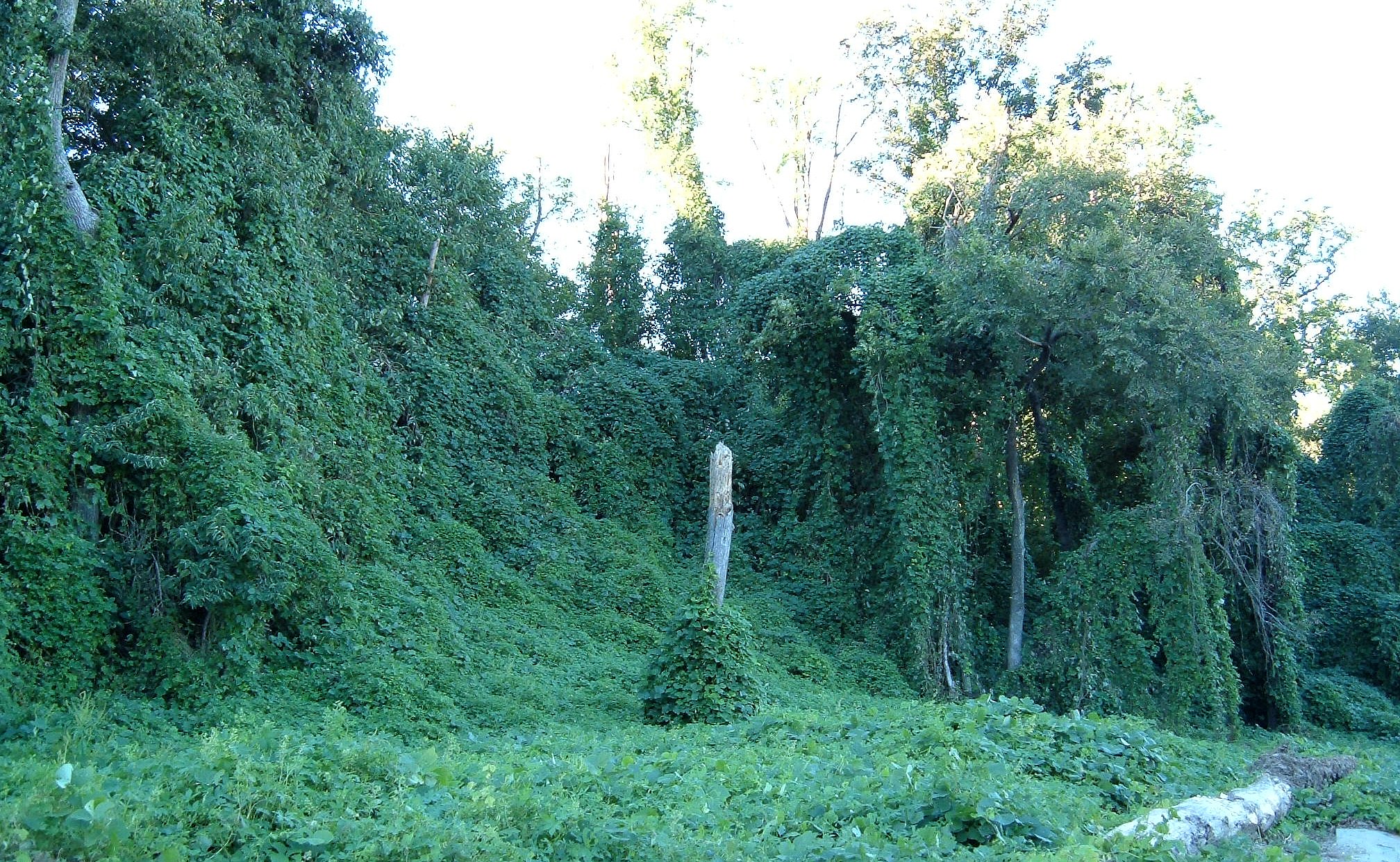
Posted on 04/30/2014 5:37:30 AM PDT by Kaslin
The pristine natural world has been gone for a long time; get used to it.
Nearly all of the earthworms in New England and the upper Midwest were inadvertently imported from Europe. The American earthworms were wiped out by the last Ice Age. That's why when European colonists first got here, many forest floors were covered in deep drifts of wet leaves. The wild horses of the American West may be no less invasive than the Asian carp advancing on the Great Lakes. Most species of the tumbleweed, icon of the Old West, are actually from Russia or Asia.
The notion that America was "wild" when Europeans found it is more than a little racist; it assumes Indians didn't act like humans everywhere else by changing their environment. Native Americans weren't Ur-hippies taking only photos -- or I guess drawings -- and leaving only footprints. They cultivated plants, cleared forests with extensive burning to boost the population of desired animals, and otherwise altered the landscape in ways that may have seemed natural to newcomers but were nonetheless profound. As biologist Charles Kay observes, "Native Americans were the ultimate keystone species, and their removal has completely altered ecosystems ... throughout North America."
Kay goes on to note that when we set aside a "wilderness" and then let "nature take its course," we aren't preserving "some remnant of the past." We are instead creating "conditions that have not existed for the last 10,000 years."
And even then, these supposedly wild places aren't truly wild. That's because to the extent they are preserved in their seemingly natural state, it is by humanity's will. Also, the remaining wild animals in those places are often the ones we decided should live or didn't accidentally kill. And the plants and animals that ate -- or were eaten by -- those creatures have never been the same. Without humans, dogs, cows, pigs and chickens wouldn't have evolved the way they have.
The wild environment isn't just about trees and bears and other forms of charismatic mega flora and fauna. I heard Bill Gates on NPR the other day talking about the great strides his foundation has made against malaria and how we may be on the brink of actually eradicating polio forever. Diseases play a huge part of any natural ecosystem, and we've been trying to drive them to extinction for centuries.
In other words, we pick and choose what should be "wild" and what shouldn't all of the time.
Last year, the salmon catch in southeast Alaska was the largest ever recorded. It may have been because controversial scientist-businessman Russ George, under contract with the Haida tribe in British Columbia, dumped 120 tons of iron sulfate into the ocean. The idea was to create a phytoplankton bloom that would in turn create feeding grounds for zooplankton, which in turn provide food for salmon and, in turn, the critters that eat them. Supporters believe George's experiment was a win-win-win all the way up the food chain, for grizzly bears and lox-and-bagel aficionados alike. Skeptics want more data, arguing -- fairly -- that the experiment needs more study.
Geoengineering proponents hope that such techniques might one day be used to sequester large amounts of carbon from the atmosphere (though studies are mixed on this score), thus diminishing the need for wealth-crushing fossil fuel prohibitions while making food cheaper for humanity. In principle, this is no more outrageous than draining swampland to eradicate malaria and create farmland.
As Robert Zubrin recently wrote on National Review Online, George's efforts have been condemned by U.N. bureaucrats, environmentalists and many scientists. The scientists are understandably cautious; the bureaucrats claim George may have violated some treaties.
But some of the ideological responses Zubrin cited are ridiculous. Naomi Klein, writing in 2012, was excited to see so many killer whales when she was in British Columbia on vacation. But when it dawned on her that the orcas might be there to partake of George's "all you can eat seafood buffet," she was horrified. In a world of geoengineering, she lamented, "all natural events can begin to take on an unnatural tinge. ... A presence that felt like a miraculous gift suddenly feels sinister, as if all of nature were being manipulated behind the scenes."
That ship sailed at least 10,000 years ago.
Here in the Sonoran Desert, we survive & prosper via the canals dug & enlarged in the first half of the 20th Century. Canals that follow the paths of the smaller canals dug by the Pima and others.
I am sure every Enviro-Wacko would agree that digging canals changes the eco-structure.

There are no honeybees native to America. They have all been imported. Imagine trying to grow many of our fruits and vegetables without pollination by the honeybee.
I’ve often wondered how many civilizations that inhabited the world before us failed due to inbreeding. They didn’t have trains, cars or planes to mix with other civilizations, so I’m guessing that inbreeding led to their downfall.
If these civilizations were so intellectually high why didn’t they forecast what would cause them to fail?
Humans are an organic part of this Earth, and the ecosystem is self correcting to adapt to any changes, even those made by humans. Irreparable damage only comes when idiots make changes to ‘fix’ the ecosystem. Then you have Kudzu.
Great piece by Jonah Goldberg ...
Deer and turkey love corn and soybeans.
Or we can just wait a few more years (probably less than 10) and the Sun's declining magnetic field will, to make a long story short, result in a cooling earth, with cooling oceans, which will absorb massive amounts of CO2 from the atmosphere.
Disclaimer: Opinions posted on Free Republic are those of the individual posters and do not necessarily represent the opinion of Free Republic or its management. All materials posted herein are protected by copyright law and the exemption for fair use of copyrighted works.